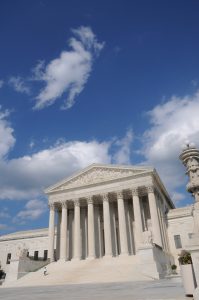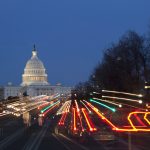The following post is by CPIP Research Associate Matt McIntee, a rising 2L at George Mason University School of Law. McIntee reviews a paper from CPIP’s 2014 Fall Conference, Common Ground: How Intellectual Property Unites Creators and Innovators.
By Matt McIntee
 In Making Copyright Work for Creative Upstarts, recently published in the George Mason Law Review, Professor Sean Pager demonstrates how the current copyright system can be improved to better support creative upstarts. Read more
In Making Copyright Work for Creative Upstarts, recently published in the George Mason Law Review, Professor Sean Pager demonstrates how the current copyright system can be improved to better support creative upstarts. Read more


 By
By  It’s been one year since the Supreme Court’s decision in Alice Corp. v. CLS Bank. On its face the
It’s been one year since the Supreme Court’s decision in Alice Corp. v. CLS Bank. On its face the  In an important decision handed down today, the Supreme Court explicitly recognized that patents are property secured by the Fifth Amendment Takings Clause. In
In an important decision handed down today, the Supreme Court explicitly recognized that patents are property secured by the Fifth Amendment Takings Clause. In  In the last two weeks, the House and Senate Judiciary Committees marked up wide-ranging patent legislation ostensibly aimed at combating frivolous litigation by so-called “patent trolls.” But while the stated purpose of the House and Senate bills—H.R. 9 (the “
In the last two weeks, the House and Senate Judiciary Committees marked up wide-ranging patent legislation ostensibly aimed at combating frivolous litigation by so-called “patent trolls.” But while the stated purpose of the House and Senate bills—H.R. 9 (the “